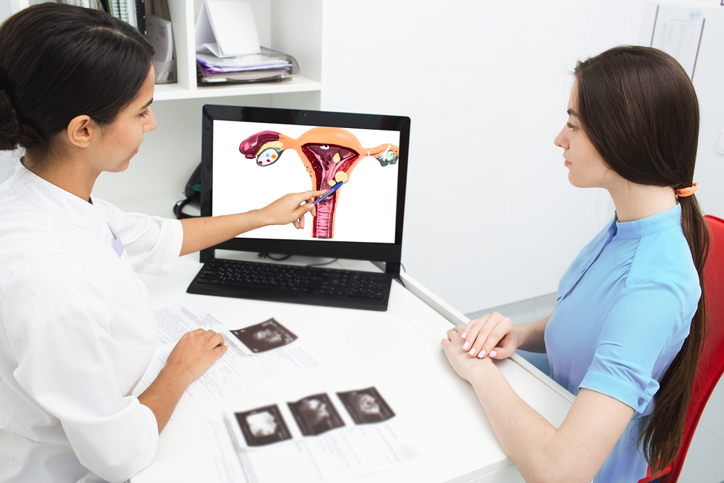How Your Vagina Changes as You Age
Just like the rest of your body, your vagina ages and once you get close to menopause, its parts don’t look or function the same as they did when you were younger.

Changes are natural and you can experience dryness, drooping, and a lack of lubrication and their effects on your bathroom habits and sex life may not be welcome.
So what are the key things you might experience?
Dryness
This is the one most women report as the first sign menopause is upon them and it is due to the dropping levels of oestrogen. This is the hormone that keeps the tissues of your vagina healthily plump and moist so once is reduces those sensitive tissues are left with less lubrication.
Dryness is one of the more distressing symptoms of menopause as it can make sex uncomfortable or even painful which can impact on your relationship.
You can use a lubricant to reduce friction or look to increasing your oestrogen levels if needed, also ensure you have sex regularly to keep up the moisture you still have.
Hair loss
Your hair goes through natural cycles where it grows for a period of time and then falls out and as your hair gets older, its growth cycle shortens.
Hormones are at the root of this again, because women at menopause see an increase in testosterone levels and that is the hormone that can fuel hair loss. When more hair falls out than your body can replace, you’ll start to see areas of thinning and so not just your scalp but the hair around your vagina can be affected too.
Progesterone is the hormone that can help with hair loss, but growth cycle is around 3 months so no quick fix unfortunately.
Labia loosens
Skin tone gets worse because of the age-related loss of elastin and collagen — proteins that once kept it tight. That’s true for the skin on your face as well as your labia — the folds on either side of your vagina.
Sagging is not attractive, but if it really bothers you then there are surgical procedures to plump and firm up your labia but only available privately and costs average £2-4000 in the UK.
Pelvic drooping
The muscles of your pelvic floor act like a sling that supports your uterus, bladder, rectum, and the top of your vagina.
Childbirth and menopause weaken these muscles, which can make the organs in your pelvis droop and usually referred to as a prolapse. Sometimes an organ falls all the way into the vagina and creates a bulge.
Devices and medical procedures can give your pelvic organs a lift and treat prolapse and treatment options include lifestyle changes, pelvic floor exercises, hormone treatment, vaginal pessaries and surgery.
Going grey
OK, you might expect the hair on your head to go grey but finding your first grey hair down below can come as a big shock. Your pubic hair turns grey for the same reason that the hair on your head does.
As you age, the pigment cells inside each hair follicle die and stop producing the chemical melanin that gives your hair its colour and as melanin production slows, your pubic hair turns grey or white.
Shrinking vaginal tissue
The loss of oestrogen around the time of menopause makes the once-stretchy tissues of your vagina thinner and less elastic. This is definitely a case of “use it or lose it” because if you don’t have sex often enough, your vagina can get shorter and narrower.
That means when you do have sex, it will hurt so maintaining a healthy sex life will keep your vagina loose and limber.
Painful sex
Dryness plus thinning of tissues in the vagina add up to painful penetration and that means over time, the delicate tissues can tear and bleed.
Don’t let fear of pain keep you from a healthy sex life because you can use oestrogen vaginally to help with lubrication. If that doesn’t help, ask your doctor about other possible treatments.
Changes to the vulva
You may not be well-acquainted with your vulva – the opening and outer lips of your vagina – but if you’ve held a mirror down there recently, you may have noticed some changes.
For one thing, it’s probably paler than it used to be due to reduced blood flow from lower oestrogen levels. The inner lips have shrunk for the same reason, and they may be drier than they were before.
UTIs increase.
Sudden urges to use the bathroom or pain when you pee could be signs of a urinary tract infection (UTI). Your vagina is home to lots of bacteria — some good, some bad and the loss of hormones around menopause changes the climate down there, leaving more bad bacteria than good.
Women have more UTIs as they age because of the loss of protective tissue barrier due to thinning and atrophy. Vaginal oestrogen can increase helpful bacteria and reduce the number of infections you get.
Helpful information:
Hopefully you won’t get all these symptoms, but it is worth keeping an eye on your hormone levels to avoid the conditions where they can occur.
For some of these a combination cream of oestrogen and progesterone such as 20-1 may be sufficient, but if you do need higher oestrogen levels then a separate bioidentical oestrogen cream may be the answer.
For more help on seeing whether you are affected by just dryness or atrophy, the following article will be helpful.
https://anna.blog.wellsprings-health.com/do-you-have-dryness-vaginal-atrophy-or-vaginitis/


















